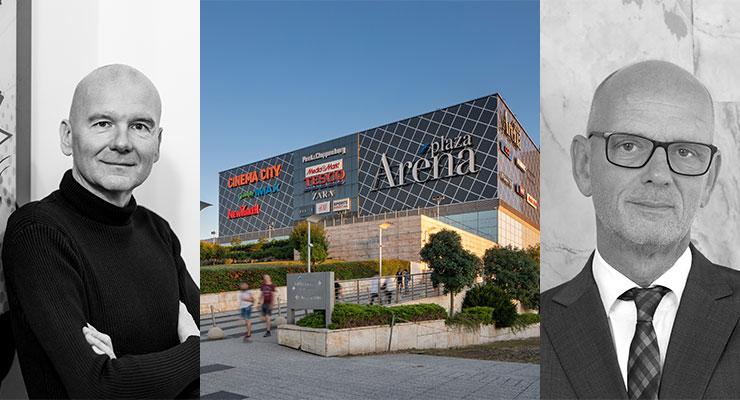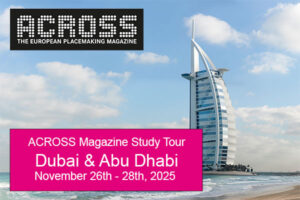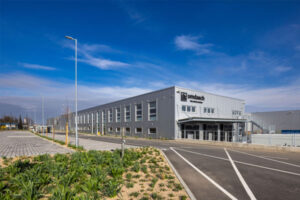ACROSS: To start things off, let’s take a quick look back: How did NEPI Rockcastle do in the past 12 months?
Rüdiger Dany: Last year was a comeback period for us. Since the second quarter of 2022, we have had double-digit growth rates every quarter. In the first quarter of 2023, our tenants also saw a good increase in sales. That is reflected in the NOI, which means we have excellent growth rates and are on budget. The comeback of brick-and-mortar retail is also accompanied by a decline in sales for online retailers. Although online retail continues to grow at 3-5 percent, this is not significant in the overall market. Developments in the capital market are also paying dividends in this respect. In times of high inflation and interest rates, companies must show their shareholders they are growing and profitable. Our sales growth in the stationary business is currently affected by inflation. However, our tenants’ sales are still above the inflation figures, and that makes for satisfied partners; our OCRs are now under 13%. That is a very different starting position and mood than in Western Europe.
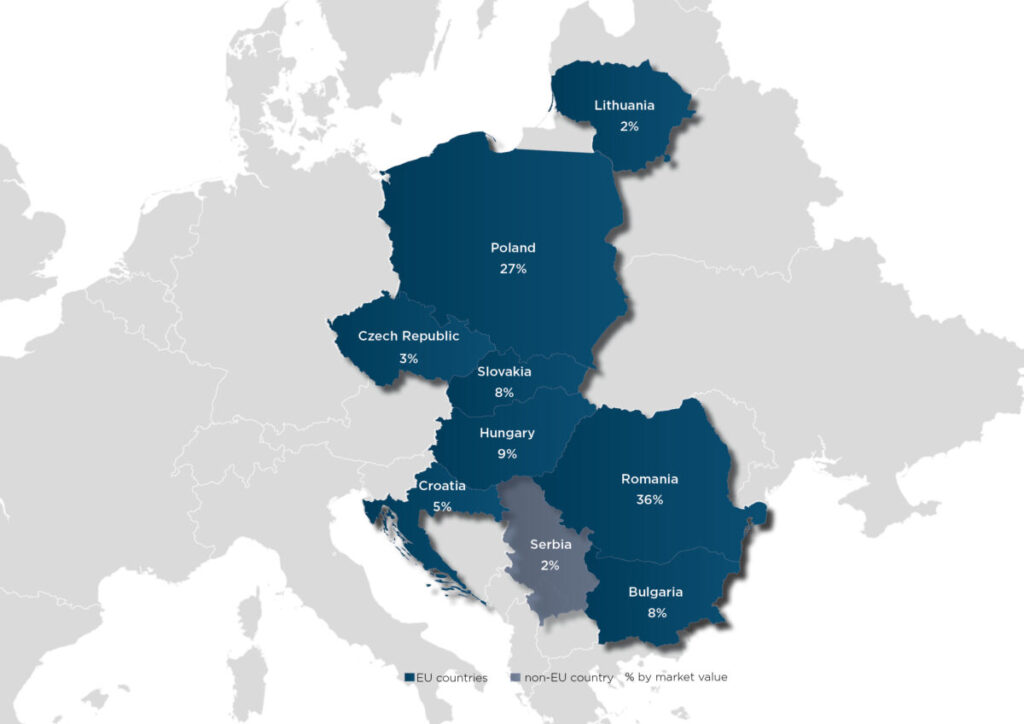
ACROSS: The contrast is striking. In Western Europe, newspapers are full of negative news regarding retail. Insolvencies, labor shortages, and high inflation are just some buzzwords. What is essentially different in your markets?
Dany: For me, there are two main issues. The first has grown historically. There is no classic high street in Central and Eastern Europe. If you want to shop, you must go to a shopping center. What has developed in the highstreet area is more high-end and not an alternative for the average consumer. Therefore, our starting point is different. The second factor, which is more severe but also more challenging to measure, is the shopper behavior and mentality. In Western Europe, especially in Germany, there is a great fear of loss of prosperity. However, people in our markets are going through their third inflationary phase. They know that this situation will continue and they are more resistant to crises. This is different in very saturated markets like Germany or France. There, many people think they have to hold on to their money to be able to pay their bills tomorrow. In our markets, people believe they should spend the money today in case it will be worth less tomorrow. We also don’t have any problems in the labor market. Retailers can find enough staff, and the employees are excellently trained.
ACROSS: Are the footfall numbers as positive as the sales figures?
Dany: No, we had seen well into 2022 that sales were already at the 2019 level, but at the same time, the frequencies still showed a minus of 8-9 percent. The people who were coming to the centers were actually buying, and the so-called window-shoppers stayed away. That has changed now. Our numbers are now back to the level of 2019, and that was, after all, the best year in NEPI Rockcastle’s corporate history.



ACROSS: Let’s take a closer look at your business: What trends are you observing in your centers?
Dany: When sales are good, retailers are more willing to expand. Concepts based in Western Europe are increasingly coming to the CEE/SEE region, as the returns are higher here. One example we are proud of is Lefties. The Inditex concept will open on 4000 sq m in Romania’s city of Craiova at the beginning of October. At the same time, retailers already represented, such as Peek & Cloppenburg or Kaufland are also requesting more space. We currently have a two percent vacancy rate in the retail sector. The demand from retailers who want to expand with us is significantly higher than the space we can provide.
ACROSS: What is your general strategy for center development? Are you moving toward more mixed-use or integrating services?
Dany: Retail is constantly changing. But the primary input still comes from our tenants. An important issue for us and the entire industry is that our centers must be essential providers for the community. For us, this means cooperating with the cities to offer certain services. A lot is also happening in the entertainment sector. Cinemas, in particular, have to look very different today than they did five years ago. They are currently making a massive comeback. We had to support cinemas extensively during the Covid era. Now that they’re doing well again, they are bringing us several thousand more people into the centers every day, and of course, this is fueling related sectors like food courts. The trends and changes we need to follow in the centers are evident. Dining experiences are important. In the entertainment sector, the topic of musicals is coming up strongly. Some operators can copy internationally successful musicals locally, and they are very well received. Suitable venues are needed for this. We can offer the operators great spaces and create added value for consumers. For example, we are already making concrete plans for Bucharest, and have already taken such concepts into account architecturally.
ACROSS: What current and future development projects are you focusing on?
Dany: We have a total pipeline of projects – either under construction or already approved – of over 700 million euros. The expansion of Promenada in Bucharest, Romania, including the construction of a business center, is underway. The first 80 million euros have already been invested there, with a further 140 million euros pending. This is one of our most significant expansion projects. Bonarka City Center in Krakow, Poland, is also being completely refurbished during ongoing operations. The investment for this property alone amounts to 80 million euros. In addition, Promenada Craiova in Bucharest, Romania, is a 140 million euro investment. Here we are opening a new shopping center with 60,000 sq m and a directly adjacent 10,000 sq m retail park. We have another development in Galați, near the Ukrainian border, where we already have a shopping center that performs very well, and we are building a retail park. We are also expanding Ploieşti Shopping City in Romania and Promenada Plovdiv in Bulgaria, where we have purchased a plot of land and are waiting for the building permit for a 60,000-sq m project.
ACROSS: You acquired Forum Gdańsk in Poland at the end of 2022. Is there anything new to tell about it since then?
Dany: We are delighted with this acquisition. In the first half of 2023, the center grew by 27 percent in sales compared to the previous year. Of course, this project also has a personal aspect for me, as I was involved in the opening of the center in 2018, while I was still working for Multi Corporation. The asset was already seeing double-digit growth in 2019, and then the pandemic intervened. So, the center needed more time and opportunity to prove itself in the market. Its enormous potential must now be exploited. We see tremendous opportunities to gain further market share. The situation is just as good as the opportunities for expansion.
ACROSS: Is the center already one of the best performers in the portfolio?
Dany: It surely is. But of course, just because they have been on the market longer, we have assets like Arena in Budapest, Hungary, and Arena in Zagreb, Croatia, that perform even better. However, there is no significant opportunity for further development at these locations.
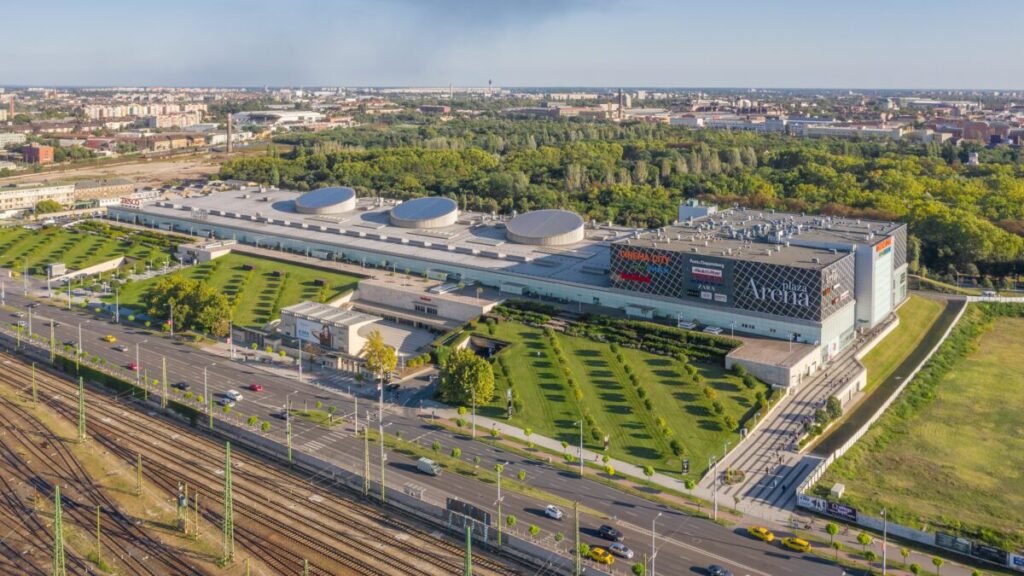
ACROSS: Many companies have recently focused on expansion in SEE markets. Is NEPI also interested in this region?
Dany: We are interested in these countries because of their location in Southeastern Europe. However, we have to take a closer look at this region’s political and economic stability. Many of these countries do not have good credit ratings. This is a significant disadvantage for us as a stock-listed company. So far, we only have Serbia in our portfolio from this cultural region. Our shopping center in Novi Sad is doing very well, but we are the only center there. In Belgrade, the situation is different. The city is “over-retailed,” and beautiful centers such as “Waterfront” therefore have a vacancy rate of up to 40 percent. The assets and tenant mix in countries like Albania or Kosovo are also truly impressive. Though for us, the question is whether the sales there are sustainable. I do consider the possibility of entering these markets. Currently, however, our focus is on increasing density in the countries where we are already active.
ACROSS: In which countries does NEPI see growth potential?
Dany: All existing assets have growth potential through expansion and modernization. Our development pipeline is around 700 million euros, so this will give us about 10 percent more retail space in the next three years. When I look at the countries, Poland is a great market, which accounts for 26 percent of our portfolio. However, Poland is also a market that does not need more greenfield projects. Here, our focus is on acquisitions and modernization of existing assets. Romania continues to be a strong market for us, so we will carry on the expansion here. Bulgaria also continues to be exciting as a growth market for NEPI Rockcastle. Croatia is a small market but also offers opportunities. Our strategy is clear: We want to be stronger in the countries where we already are present. In the end, however, it is always a question of opportunities.
ACROSS: Especially since there are significant ESG investments on the horizon.
Dany: A major investment area for us is photovoltaics, based at NEPI Energy. By the end of the year, we will have invested 37 million euros in 30 assets to generate and sell our own electricity. This is a profitable business that generates double-digit yields. The plan is to expand this approach across the portfolio. This project is its own business line in terms of scale. The investment has a double purpose. First, we can significantly move down the CO2 footprint of our assets. On average, we produce 30 percent of the energy consumed per asset. On the other hand, the whole thing is highly profitable.
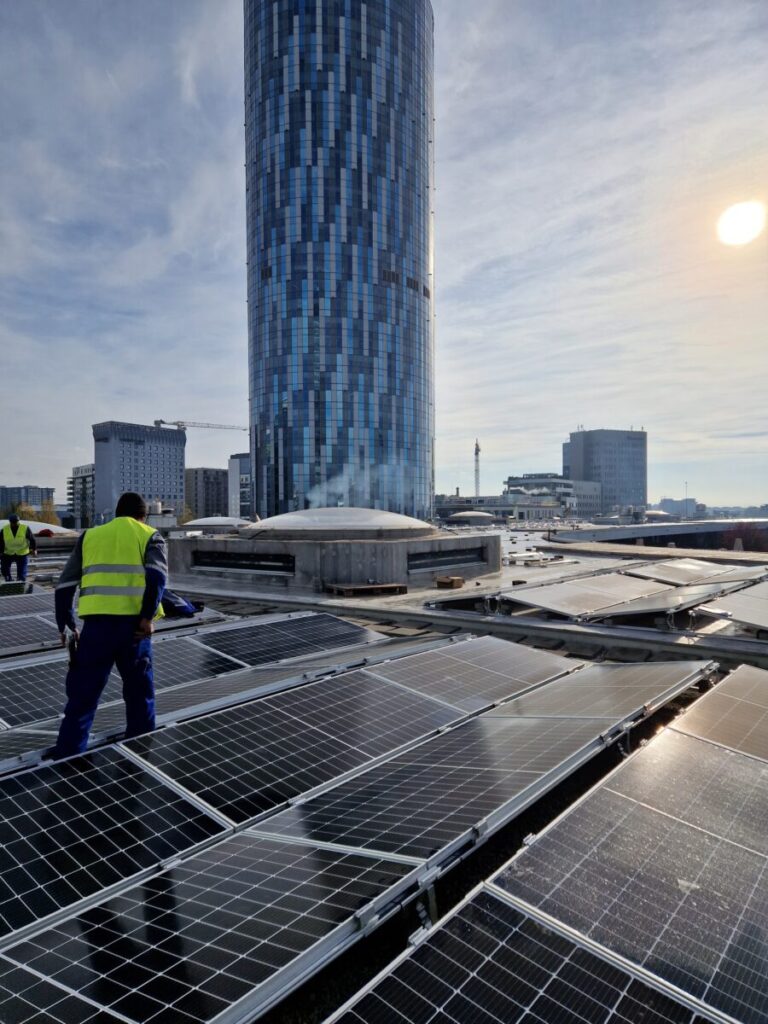
ACROSS: One final question: What can Western Europe learn from your markets?
Dany: As explained at the beginning, the different market developments are due to their history and the different mentalities of their consumers. Therefore, there is no one transferable strategy. Nevertheless, I see a general trend toward negative sentiments in Western Europe. In this respect, the West can learn something from Eastern Europe: Think a little further ahead. Don’t just look at today’s problems; think more about how we can shape tomorrow together. Our industry faces challenges, but retail is here to stay. People want to meet, and they strive for community. The Covid pandemic and the development after it clearly showed that. Focusing on that would help develop a positive attitude.
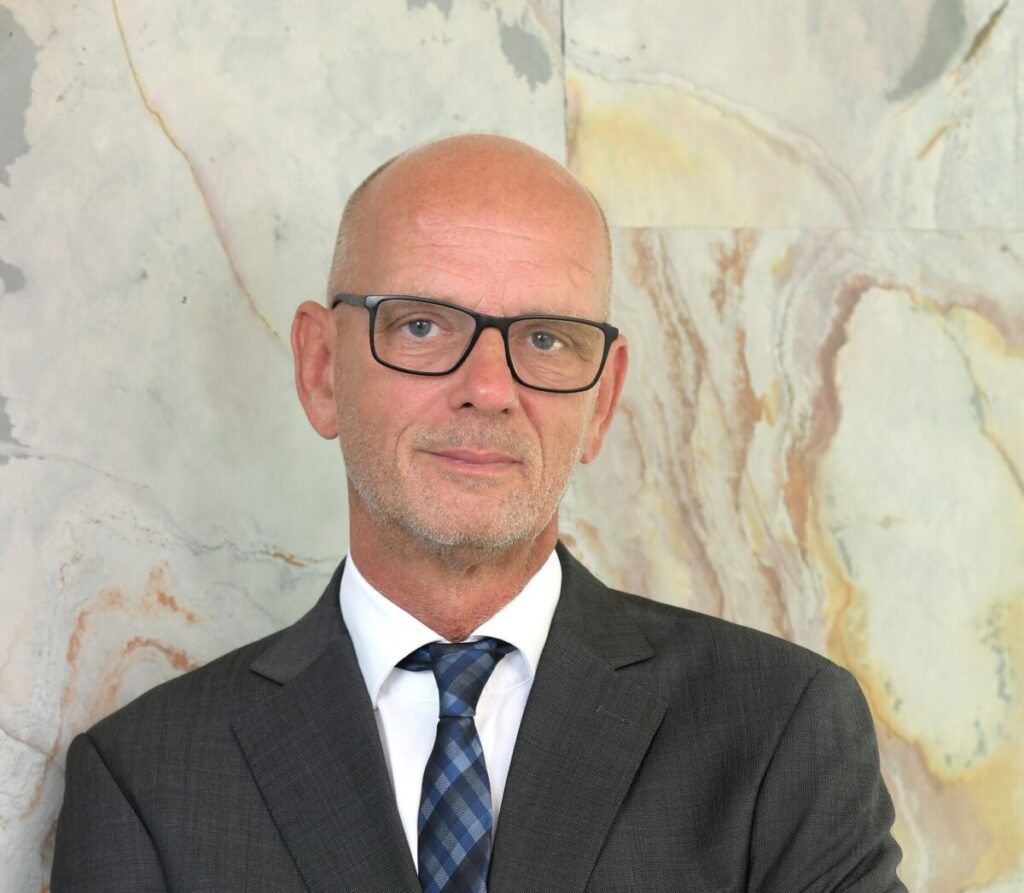
Rüdiger Dany
With an extensive professional experience of more than 30 years in retail, commercial real estate, leasing and asset management, Rüdiger Dany took over the Chief Executive Officer at NEPI Rockcastle beginning of 2022. Prior to joining NEPI Rockcastle, he has held various senior management positions and worked in international environments across Europe (including Germany, Poland, Slovakia, Czech Republic, Greece, Turkey, Lithuania, Serbia, Romania), for large international retail and real estate companies including ECE, Atrium and Multi Corporation.

